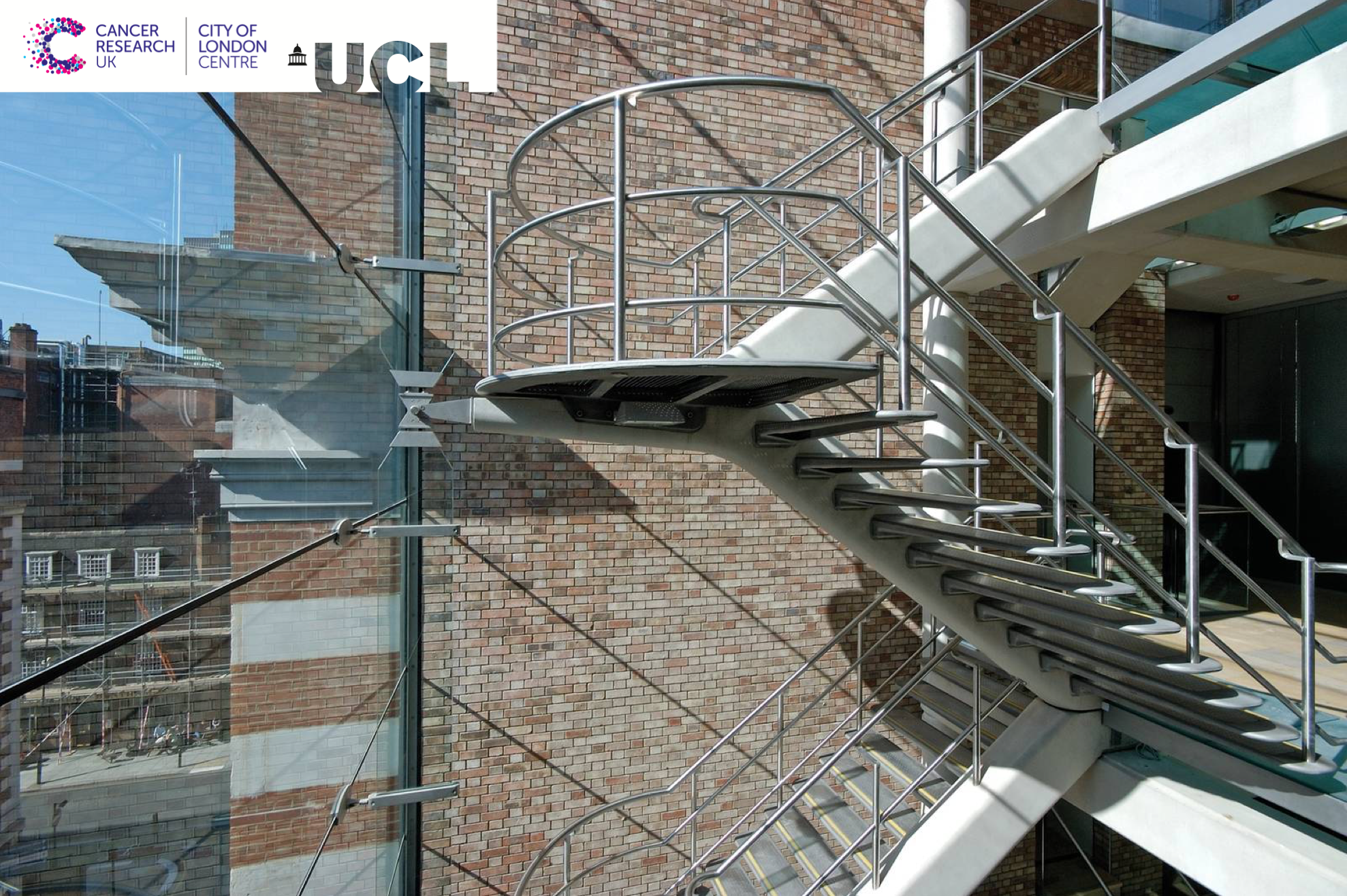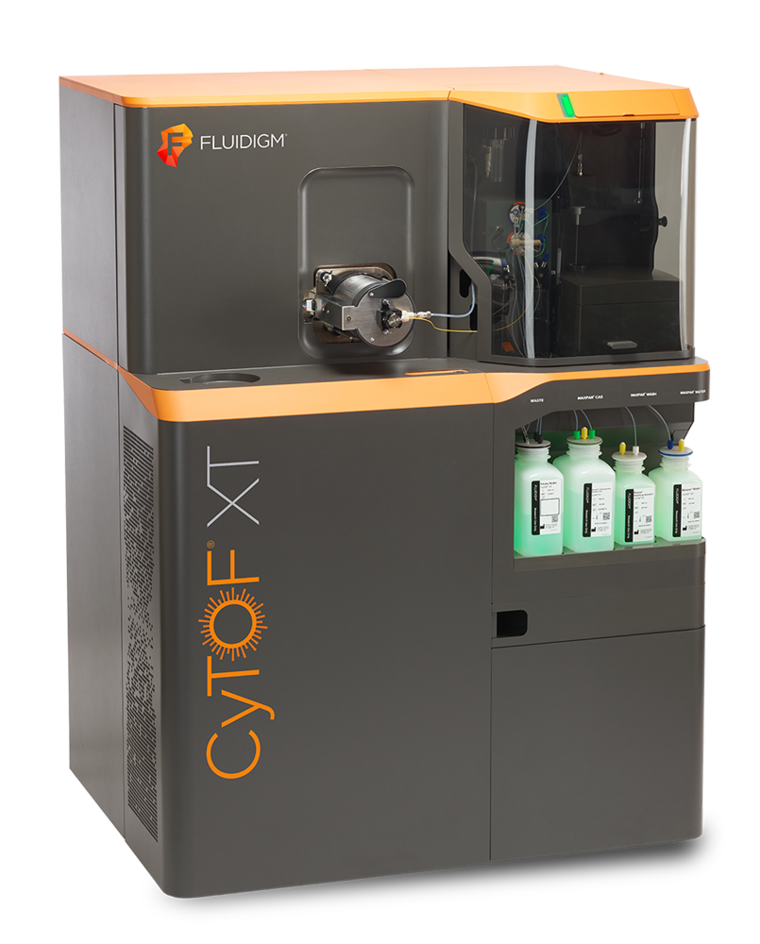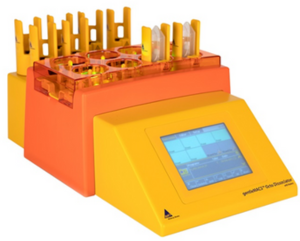Technology & Facilities
We are based at the University College London Cancer Institute (UCL CI) in the heart of central London (next to UCL Hospital). UCL CI is a world-class CRUK Centre, that performs both basic and translation cancer research. We use the state-of-the-art facilities at UCL CI to study how epithelial, stromal, and immune cells communicate in cancer. Several of these technologies are described below.
If you are interested in joining the lab, please visit our Contact page.
CyTOF XT Mass Cytometer
The CyTOF XT is the latest automated mass cytometry platform from Fluidigm. It can measure 50 proteins/PTMs from hundreds of organoid cultures at single-cell resolution. The lab uses mass cytometry to study how oncogenes regulate cell-cell communication across multiple cell types in organoid models of cancer. You can read more about this Thiol Organoid Barcoding in situ Mass Cytometry (TOBis MC) method in Qin et al., Nature Methods, 2020 and Sufi & Qin et al., Nature Protocols, 2021.
Opentrons Flex Robots
The lab has two Opentrons Flex liquid-handling robots from Opentrons. Much like the smaller OT-2, the Opentrons Flex can be fitted with automated single- and multi-channel pipetting, heating bocks, magnetic modules, and a thermocycler. In addition, the Opentrons Flex also supports a plate gripper, a 96-channel pipette, a HEPA filter for sterile work, and waste shoot for high-throughput applications. The Opentrons Flex can perform automated 96-well organoid removal, barcode production, SPLiT-seq sample processing, and NGS library preparation.
OT-2 Robot
The OT-2 is a highly customisable liquid-handling robot from Opentrons. In addition to automated single- and multi-channel pipetting, the OT-2 can be fitted with heating bocks, a magnetic module, and a thermocycler. The OT-2 can automate the printing of 35-plex and 126-plex TOBis barcodes, dissociation of 96-well plate organoid cultures, and NGS library prep. Custom OT-2 scripts can be found on our GitHub.
Orbitrap Explores 480 Mass-Spectrometer
UCL CI has an Orbitrap Exploris 480 and a Q-Exactive Plus mass-spectrometer for proteomic and phosphoproteomic analysis of cell signalling.
gentleMACS Octo Dissociators
The lab has four gentleMACS Octo Dissociators from Miltenyi. The gentleMACS Dissociators can rapidly dissociate millions of barcoded organoids into single cells for downstream analysis. Moreover, the gentleMACS Dissociators can also be used to generate new patient-derived organoids from surgical tissue resections.
High Performance Computing (HPC)
UCL Research Computing Services provide access to High Performance Computing (HPC) environments such as 'Legion', ‘Myriad’, and 'Grace', as well as the CRUK City of London Centre cluster ‘Lucky’. The lab uses UCL's HPCs to analyse complex single-cell data from heterocellular cancer models.









